×
Il semble que vous utilisiez une version obsolète de internet explorer. Internet explorer n'est plus supporté par Microsoft depuis fin 2015. Nous vous invitons à utiliser un navigateur plus récent tel que Firefox, Google Chrome ou Microsoft Edge.
My Player placeholder

Devenez membre d'Incathlab et bénéficiez d'un accès complet !
Vous devez être membre pour accéder aux vidéos Incathlab sans limitation. Inscrivez vous gratuitement en moins d'une minute et accédez à tous les services Incathlab ! Vous avez aussi la possibilité de vous connecter directement avec votre compte facebook ou twitter en cliquant sur login en haut à droite du site.
Inscription Connexion
Inscription Connexion
This case describes the treatment of a CTO to LAD.
Protocol
- Procedure time: 75 min
- Exposure time: 25 min
- Exposure: 802,20 mGy
- Contrast volume: 110 ml visipaque 350
Objectives: to learn
- how to use ultra thin struts stent
- how to antegradely approach a CTO lesion
- how to use a trapper
-IVUS use in CTO
Date du tournage : 10/04/2019
Dernière mise à jour : 04/03/2020
Dernière mise à jour : 04/03/2020
Participer à la discussion
Suggestions
Vendredi 28 mars 2025 de 08h à 22h (GMT+1)
Honolulu : Jeudi 27 mars 2025 de 21h à 11h (GMT+1)
San Francisco : Jeudi 27 mars 2025 de 23h à 13h (GMT+1)
New York : Vendredi 28 mars 2025 de 02h à 16h (GMT+1)
Buenos Aires : Vendredi 28 mars 2025 de 04h à 18h (GMT+1)
London / Dublin : Vendredi 28 mars 2025 de 07h à 21h (GMT+1)
Paris / Berlin : Vendredi 28 mars 2025 de 08h à 22h (GMT+1)
Istanbul : Vendredi 28 mars 2025 de 09h à 23h (GMT+1)
Moscou / Dubaï : Vendredi 28 mars 2025 de 11h à 01h (GMT+1)
Bangkok : Vendredi 28 mars 2025 de 14h à 04h (GMT+1)
Shanghai : Vendredi 28 mars 2025 de 15h à 05h (GMT+1)
Tokyo : Vendredi 28 mars 2025 de 16h à 06h (GMT+1)
Sydney : Vendredi 28 mars 2025 de 17h à 07h (GMT+1)
Wellington : Vendredi 28 mars 2025 de 19h à 09h (GMT+1)
San Francisco : Jeudi 27 mars 2025 de 23h à 13h (GMT+1)
New York : Vendredi 28 mars 2025 de 02h à 16h (GMT+1)
Buenos Aires : Vendredi 28 mars 2025 de 04h à 18h (GMT+1)
London / Dublin : Vendredi 28 mars 2025 de 07h à 21h (GMT+1)
Paris / Berlin : Vendredi 28 mars 2025 de 08h à 22h (GMT+1)
Istanbul : Vendredi 28 mars 2025 de 09h à 23h (GMT+1)
Moscou / Dubaï : Vendredi 28 mars 2025 de 11h à 01h (GMT+1)
Bangkok : Vendredi 28 mars 2025 de 14h à 04h (GMT+1)
Shanghai : Vendredi 28 mars 2025 de 15h à 05h (GMT+1)
Tokyo : Vendredi 28 mars 2025 de 16h à 06h (GMT+1)
Sydney : Vendredi 28 mars 2025 de 17h à 07h (GMT+1)
Wellington : Vendredi 28 mars 2025 de 19h à 09h (GMT+1)
Complex & High-Risk Indicated Procedures
Discover the 6th edition - Day #1
Partager
Jeudi 11 avril 2019 de 12h30 à 14h (GMT+2)
Honolulu : Jeudi 11 avril 2019 de 01h30 à 03h (GMT+2)
San Francisco : Jeudi 11 avril 2019 de 04h30 à 06h (GMT+2)
New York : Jeudi 11 avril 2019 de 07h30 à 09h (GMT+2)
Buenos Aires : Jeudi 11 avril 2019 de 08h30 à 10h (GMT+2)
Reykjavik : Jeudi 11 avril 2019 de 11h30 à 13h (GMT+2)
London / Dublin : Jeudi 11 avril 2019 de 12h30 à 14h (GMT+2)
Paris / Berlin : Jeudi 11 avril 2019 de 13h30 à 15h (GMT+2)
Istanbul : Jeudi 11 avril 2019 de 14h30 à 16h (GMT+2)
Moscou / Dubaï : Jeudi 11 avril 2019 de 15h30 à 17h (GMT+2)
Bangkok : Jeudi 11 avril 2019 de 18h30 à 20h (GMT+2)
Shanghai : Jeudi 11 avril 2019 de 19h30 à 21h (GMT+2)
Tokyo : Jeudi 11 avril 2019 de 20h30 à 22h (GMT+2)
Sydney : Jeudi 11 avril 2019 de 22h30 à 00h (GMT+2)
Wellington : Vendredi 12 avril 2019 de 00h30 à 02h (GMT+2)
San Francisco : Jeudi 11 avril 2019 de 04h30 à 06h (GMT+2)
New York : Jeudi 11 avril 2019 de 07h30 à 09h (GMT+2)
Buenos Aires : Jeudi 11 avril 2019 de 08h30 à 10h (GMT+2)
Reykjavik : Jeudi 11 avril 2019 de 11h30 à 13h (GMT+2)
London / Dublin : Jeudi 11 avril 2019 de 12h30 à 14h (GMT+2)
Paris / Berlin : Jeudi 11 avril 2019 de 13h30 à 15h (GMT+2)
Istanbul : Jeudi 11 avril 2019 de 14h30 à 16h (GMT+2)
Moscou / Dubaï : Jeudi 11 avril 2019 de 15h30 à 17h (GMT+2)
Bangkok : Jeudi 11 avril 2019 de 18h30 à 20h (GMT+2)
Shanghai : Jeudi 11 avril 2019 de 19h30 à 21h (GMT+2)
Tokyo : Jeudi 11 avril 2019 de 20h30 à 22h (GMT+2)
Sydney : Jeudi 11 avril 2019 de 22h30 à 00h (GMT+2)
Wellington : Vendredi 12 avril 2019 de 00h30 à 02h (GMT+2)
Designed for challenging cases - the role of ultrathin DES
Live from UZ Leuven, Belgium
Partager
Mercredi 26 avril 2023 de 13h à 14h30 (GMT+2)
Honolulu : Mercredi 26 avril 2023 de 02h à 03h30 (GMT+2)
San Francisco : Mercredi 26 avril 2023 de 05h à 06h30 (GMT+2)
New York : Mercredi 26 avril 2023 de 08h à 09h30 (GMT+2)
Buenos Aires : Mercredi 26 avril 2023 de 09h à 10h30 (GMT+2)
Reykjavik : Mercredi 26 avril 2023 de 12h à 13h30 (GMT+2)
London / Dublin : Mercredi 26 avril 2023 de 13h à 14h30 (GMT+2)
Paris / Berlin : Mercredi 26 avril 2023 de 14h à 15h30 (GMT+2)
Istanbul : Mercredi 26 avril 2023 de 15h à 16h30 (GMT+2)
Moscou / Dubaï : Mercredi 26 avril 2023 de 16h à 17h30 (GMT+2)
Bangkok : Mercredi 26 avril 2023 de 19h à 20h30 (GMT+2)
Shanghai : Mercredi 26 avril 2023 de 20h à 21h30 (GMT+2)
Tokyo : Mercredi 26 avril 2023 de 21h à 22h30 (GMT+2)
Sydney : Mercredi 26 avril 2023 de 23h à 00h30 (GMT+2)
Wellington : Jeudi 27 avril 2023 de 01h à 02h30 (GMT+2)
San Francisco : Mercredi 26 avril 2023 de 05h à 06h30 (GMT+2)
New York : Mercredi 26 avril 2023 de 08h à 09h30 (GMT+2)
Buenos Aires : Mercredi 26 avril 2023 de 09h à 10h30 (GMT+2)
Reykjavik : Mercredi 26 avril 2023 de 12h à 13h30 (GMT+2)
London / Dublin : Mercredi 26 avril 2023 de 13h à 14h30 (GMT+2)
Paris / Berlin : Mercredi 26 avril 2023 de 14h à 15h30 (GMT+2)
Istanbul : Mercredi 26 avril 2023 de 15h à 16h30 (GMT+2)
Moscou / Dubaï : Mercredi 26 avril 2023 de 16h à 17h30 (GMT+2)
Bangkok : Mercredi 26 avril 2023 de 19h à 20h30 (GMT+2)
Shanghai : Mercredi 26 avril 2023 de 20h à 21h30 (GMT+2)
Tokyo : Mercredi 26 avril 2023 de 21h à 22h30 (GMT+2)
Sydney : Mercredi 26 avril 2023 de 23h à 00h30 (GMT+2)
Wellington : Jeudi 27 avril 2023 de 01h à 02h30 (GMT+2)
CAMP LIVE CASE
European Session from Luzerner Kantonsspital
Partager
Severe tortuous RCA and calcified LAD
Dr Johan Bennett, Dr. Ariel Roguin & Dr Eugenio La Scala
Partager
Complex PCI made easy by physiology
Dr Johan Bennett, Dr. Ariel Roguin, Dr Eugenio La Scala & Dr Keir McCutcheon
Partager
Multivessel PCI (calcified prox RCA and prox LAD lesions)
Dr Johan Bennett & Dr Eugenio La Scala
Partager
Functional guided percutaneous revascularization (Lcx and LAD)
Dr Johan Bennett & Dr Ariel Roguin
Partager

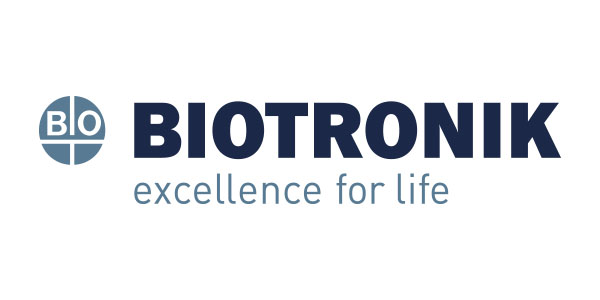
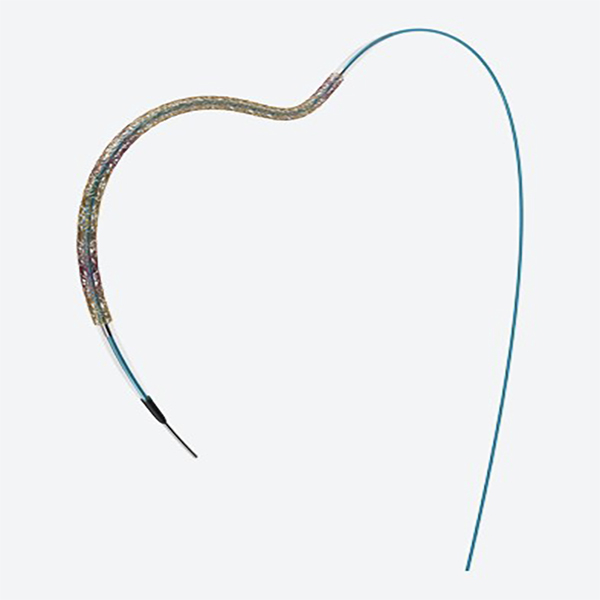
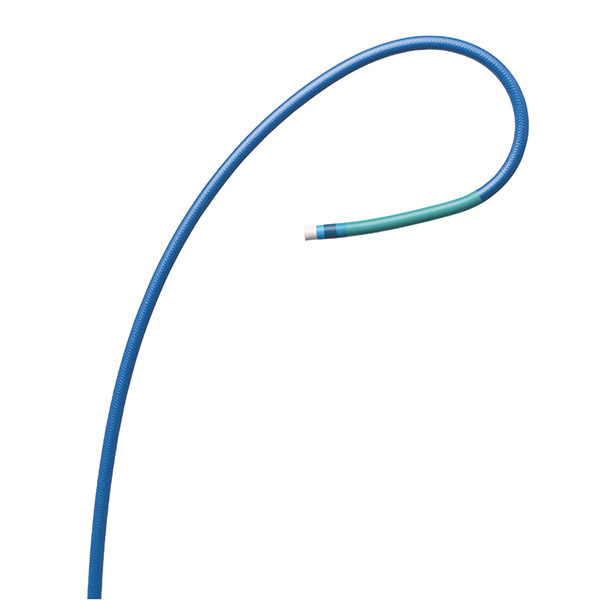
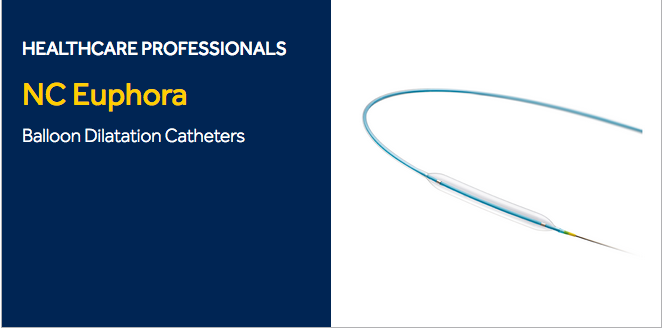
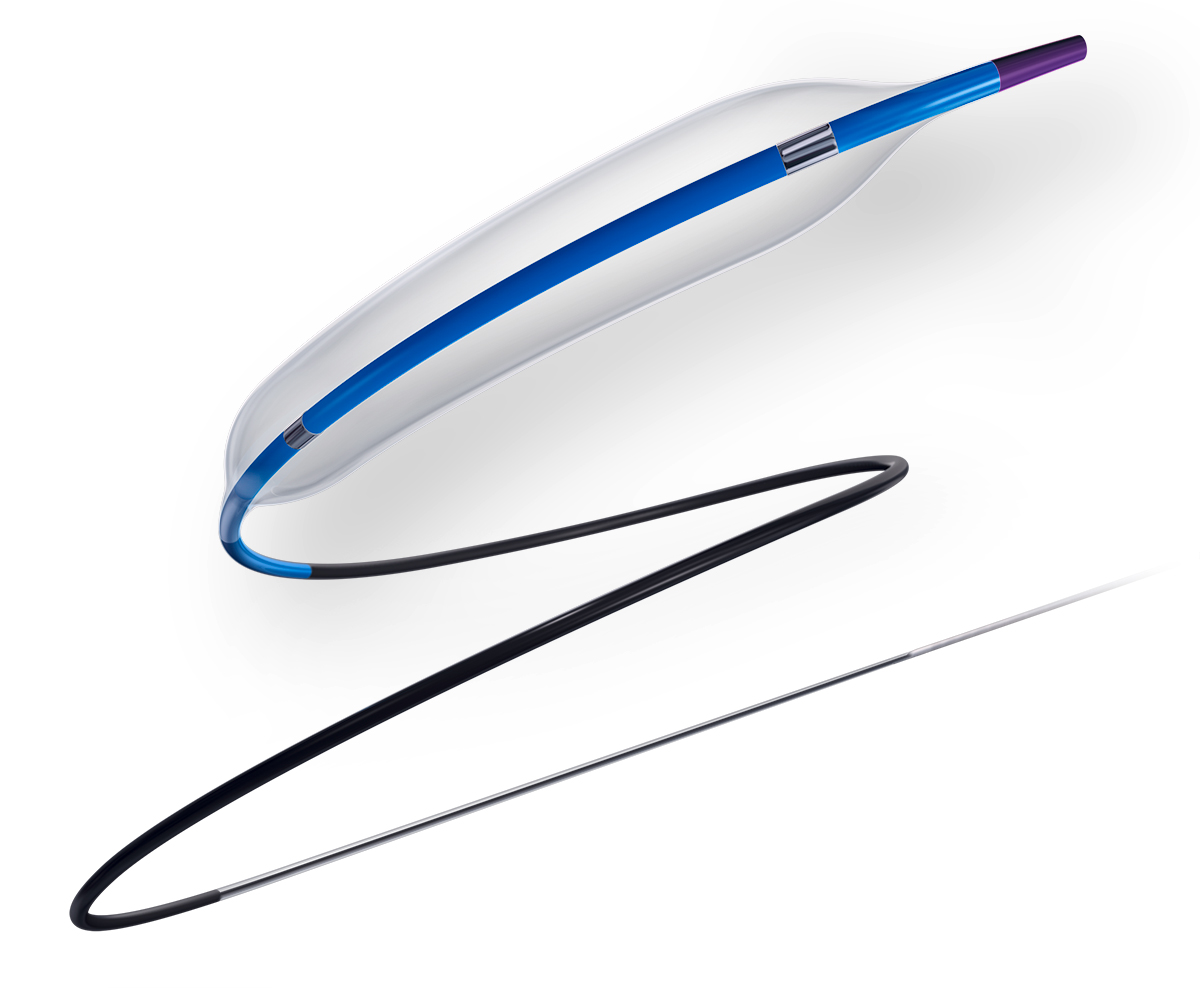
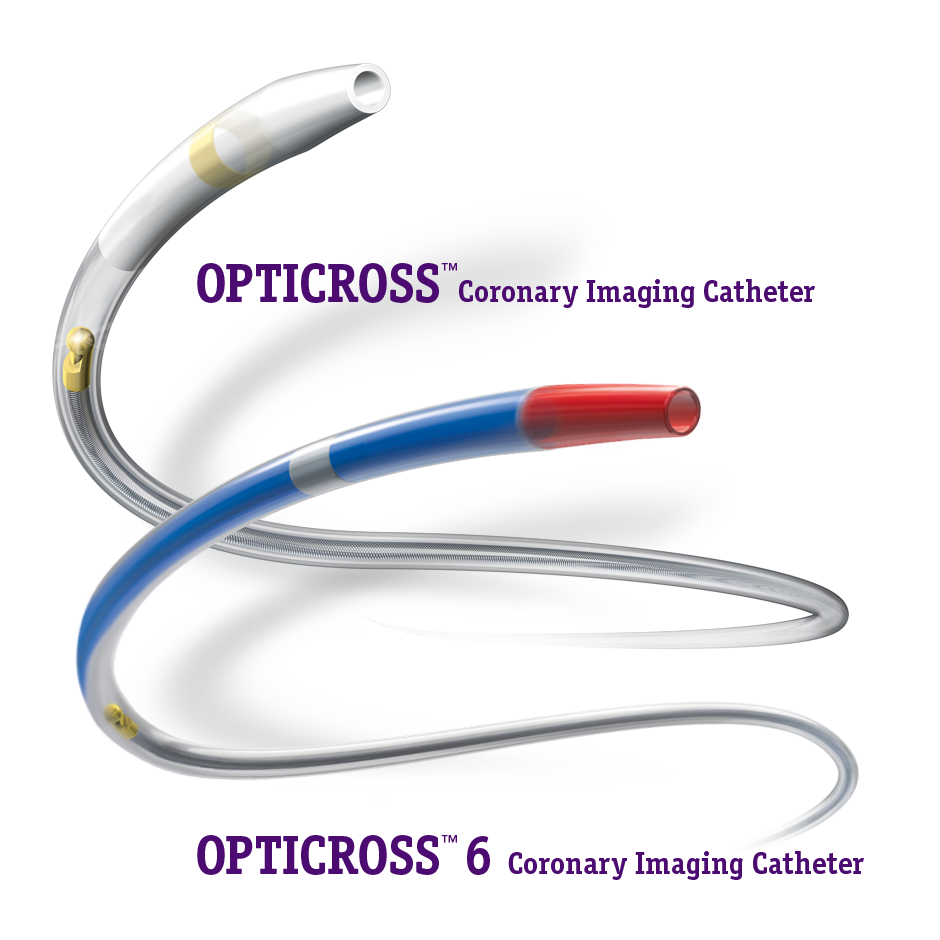
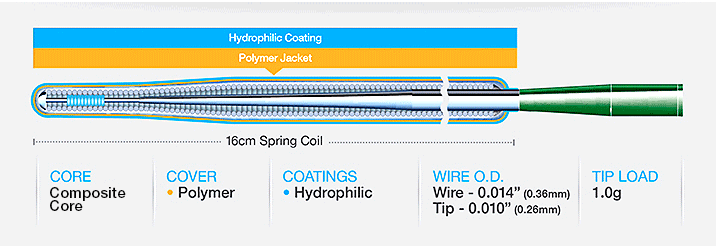
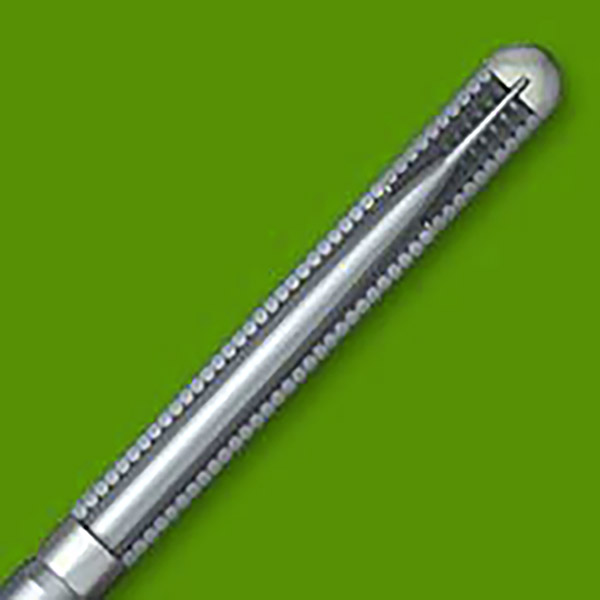
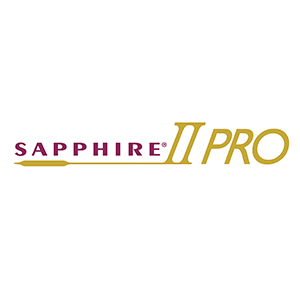
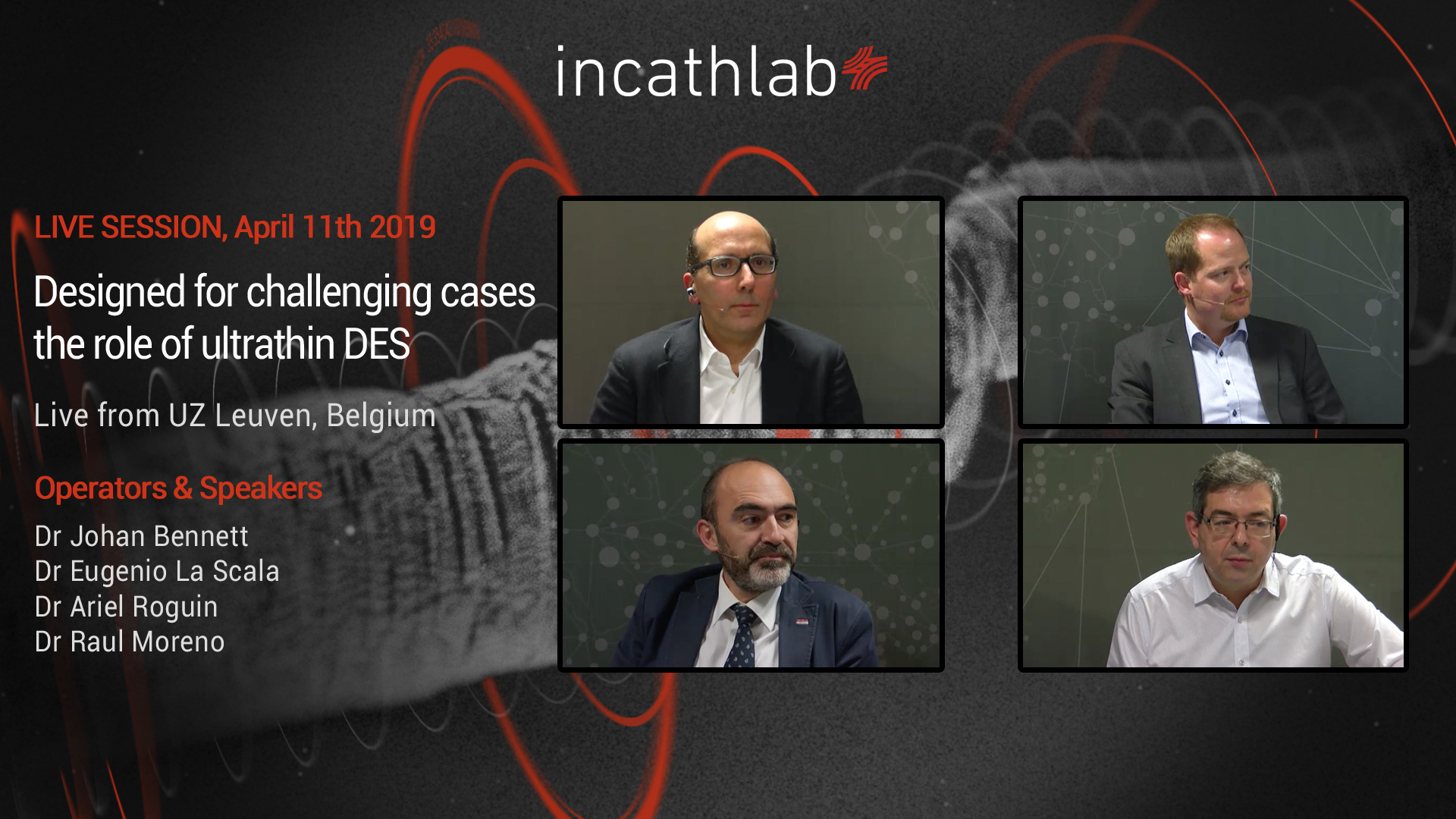
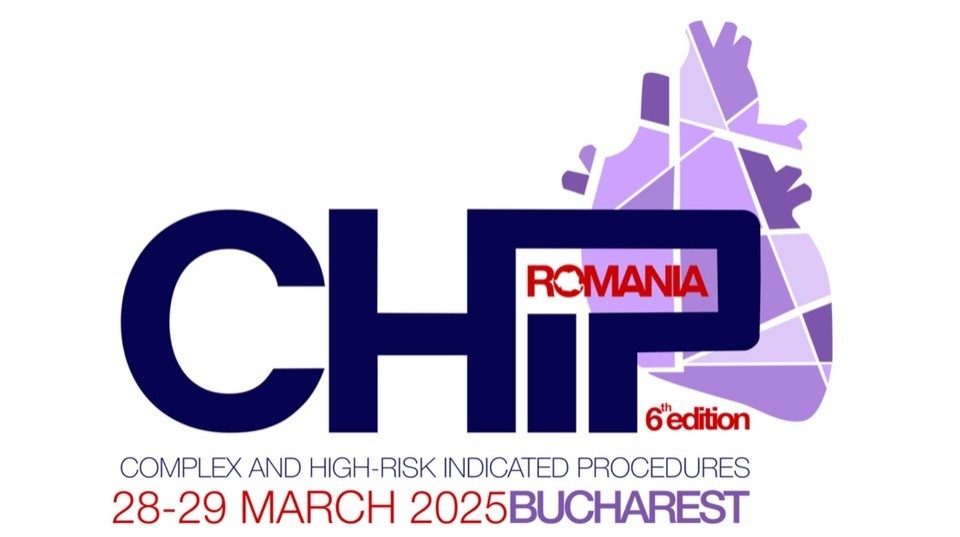
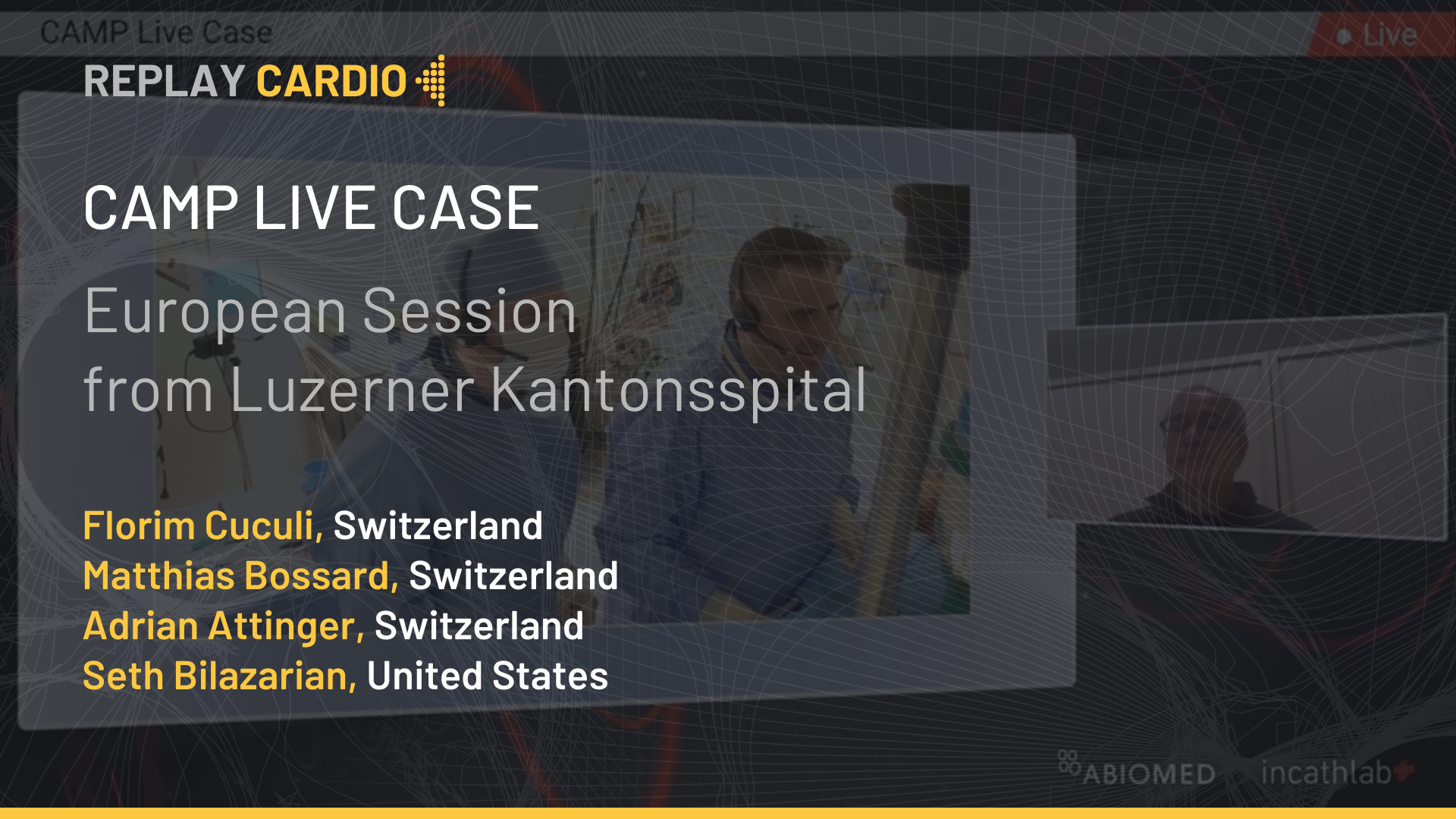
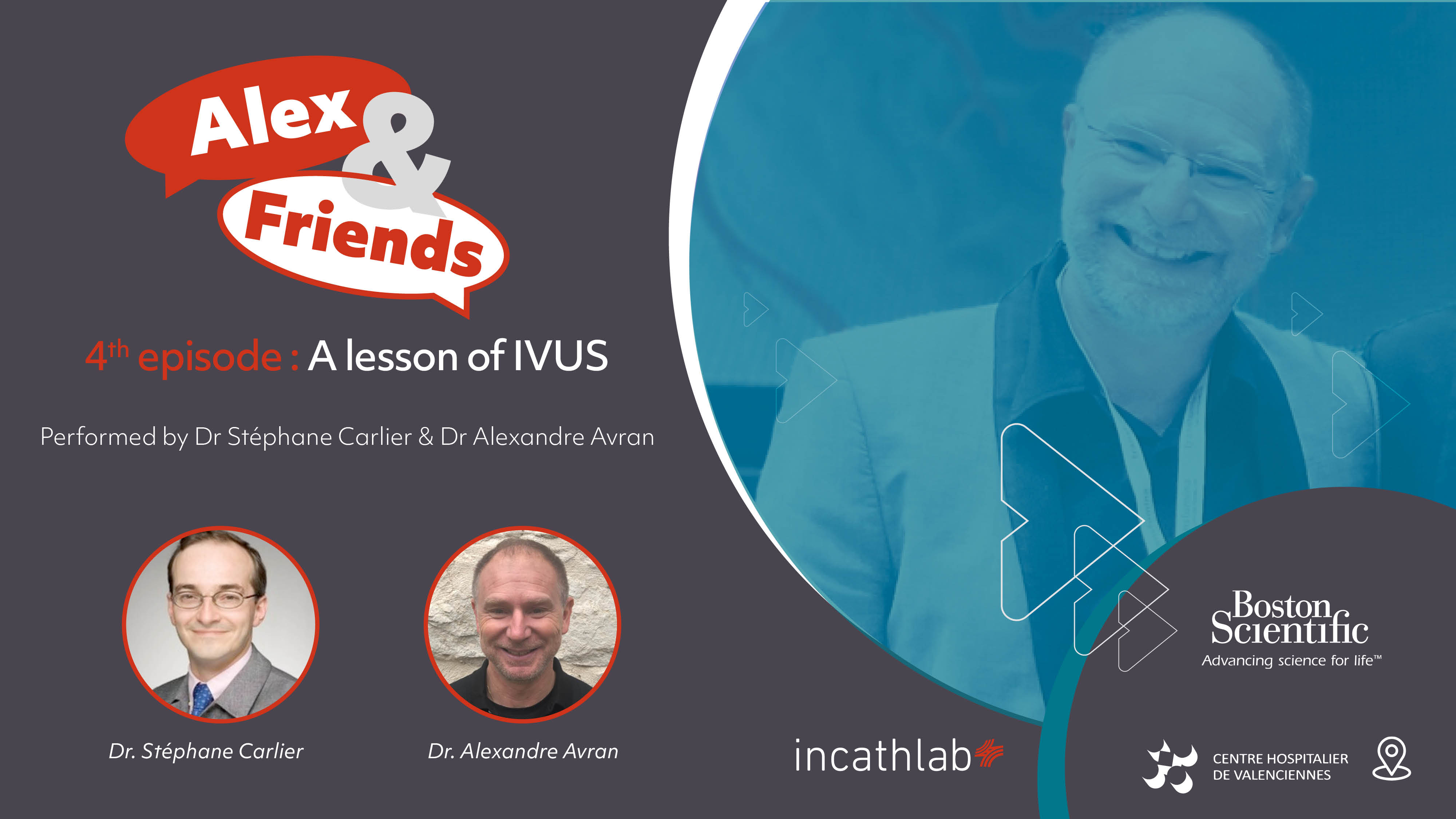

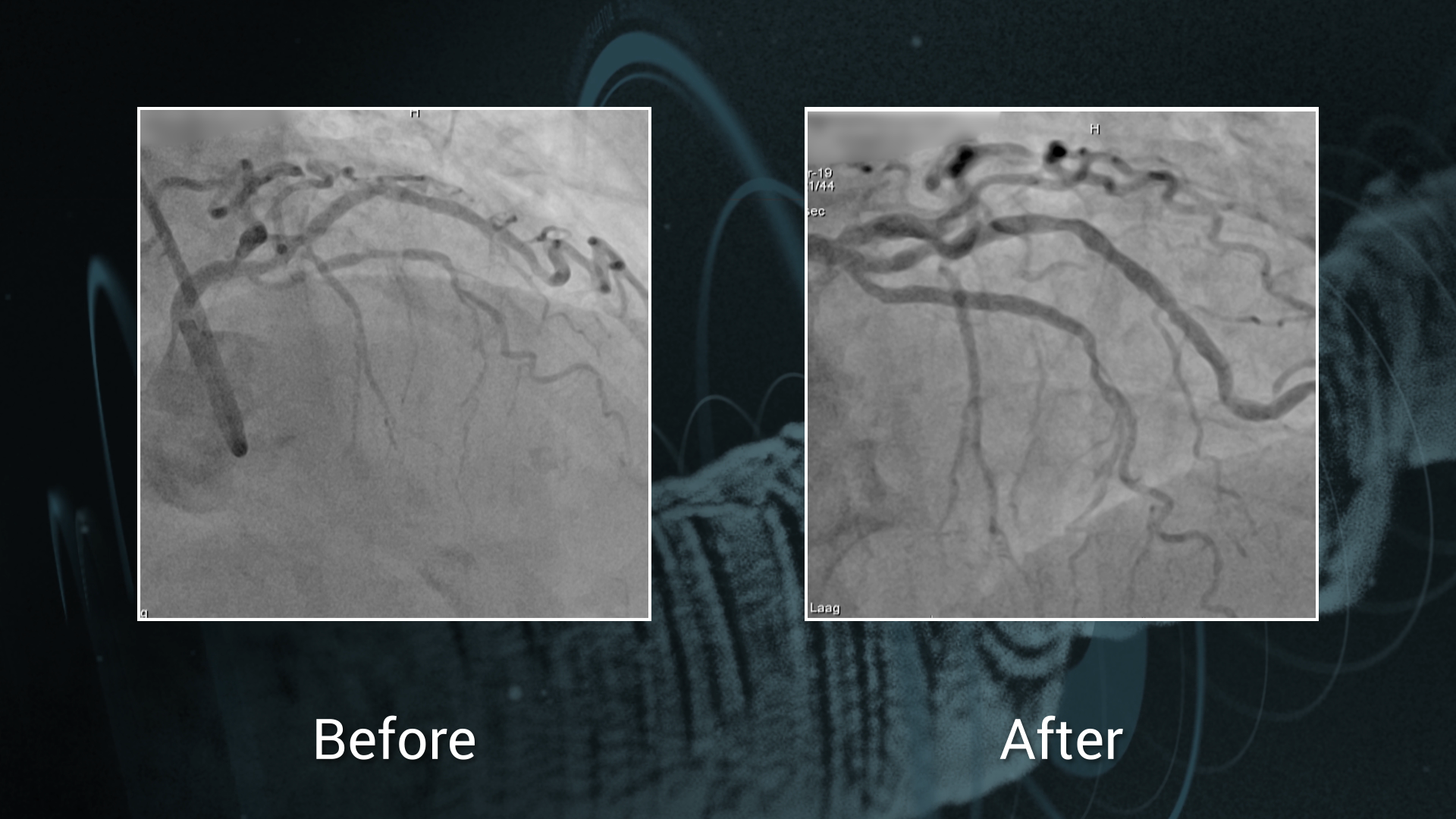
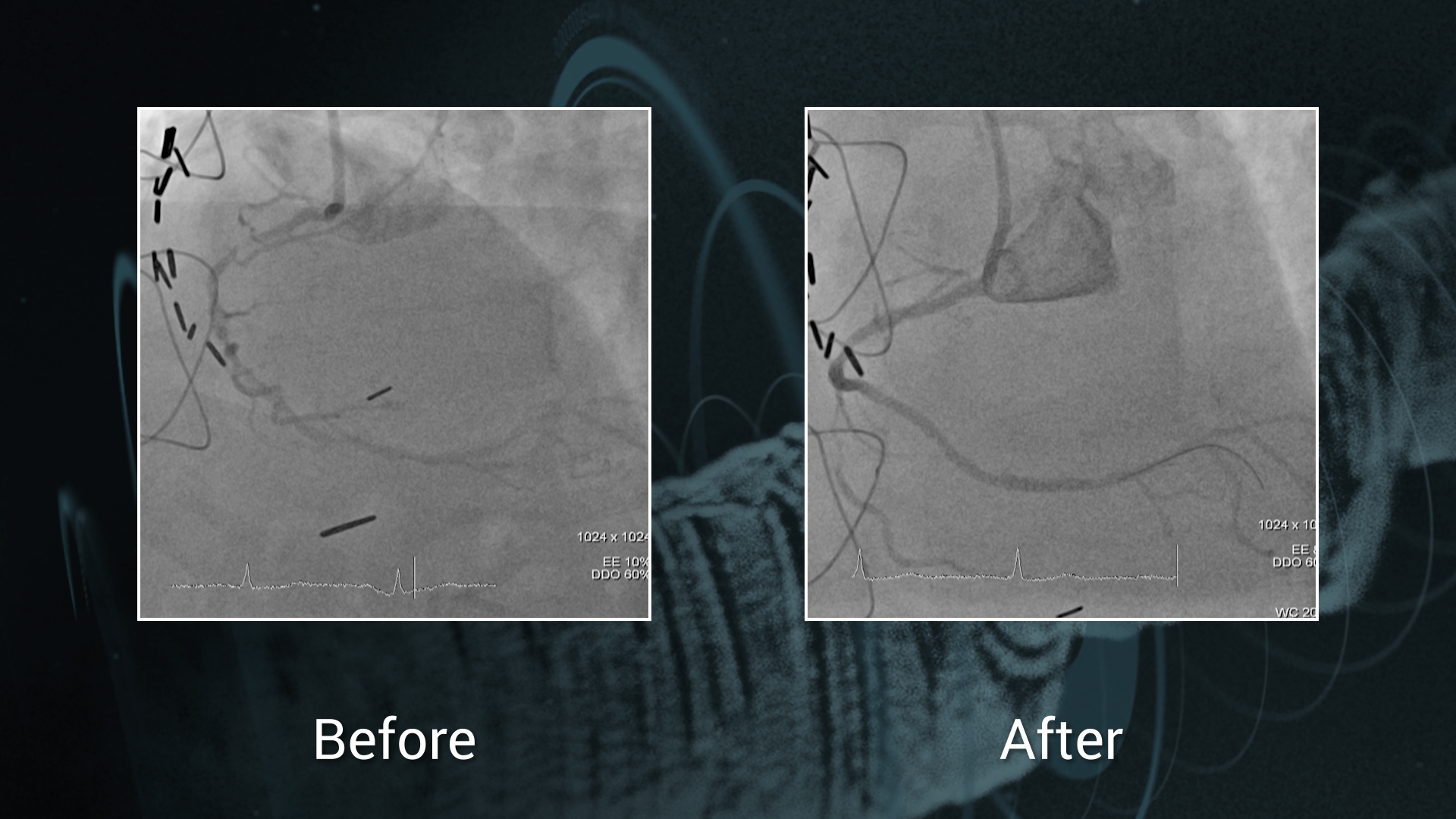
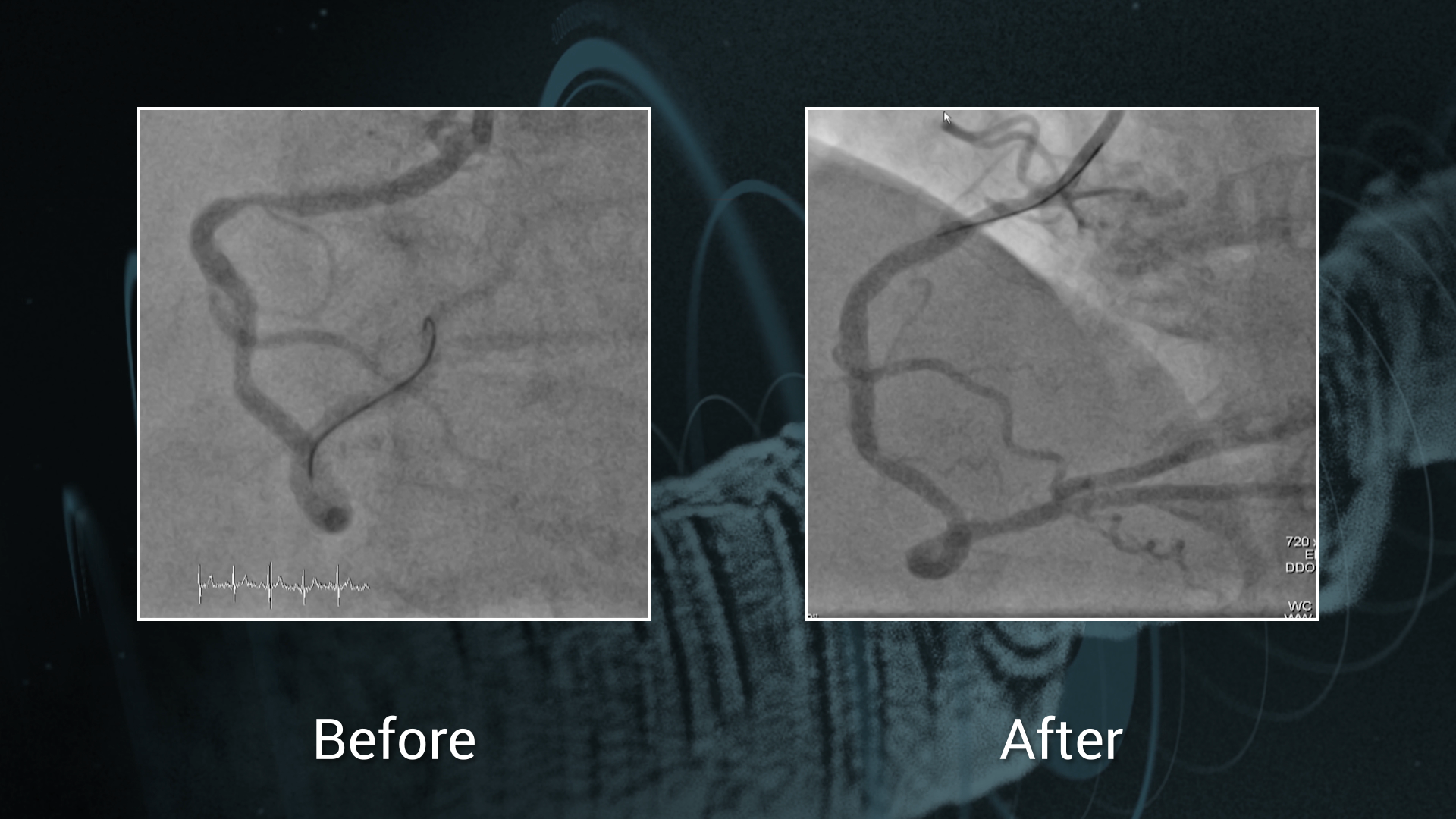
yilmaz M. congratulations. the flow of LAD is quite good but there is serious stenosis at the ostium of the Diagonal branch. It is an important branch. therefore it is not appropriate to leave the patient in this way in terms of complete revascularization of the patient. I would open the side branch.
Hassaan A. I think there is data that supports that if there is TIMI 3 flow in the Diagonal branch its best to leave it alone
Tekten T.